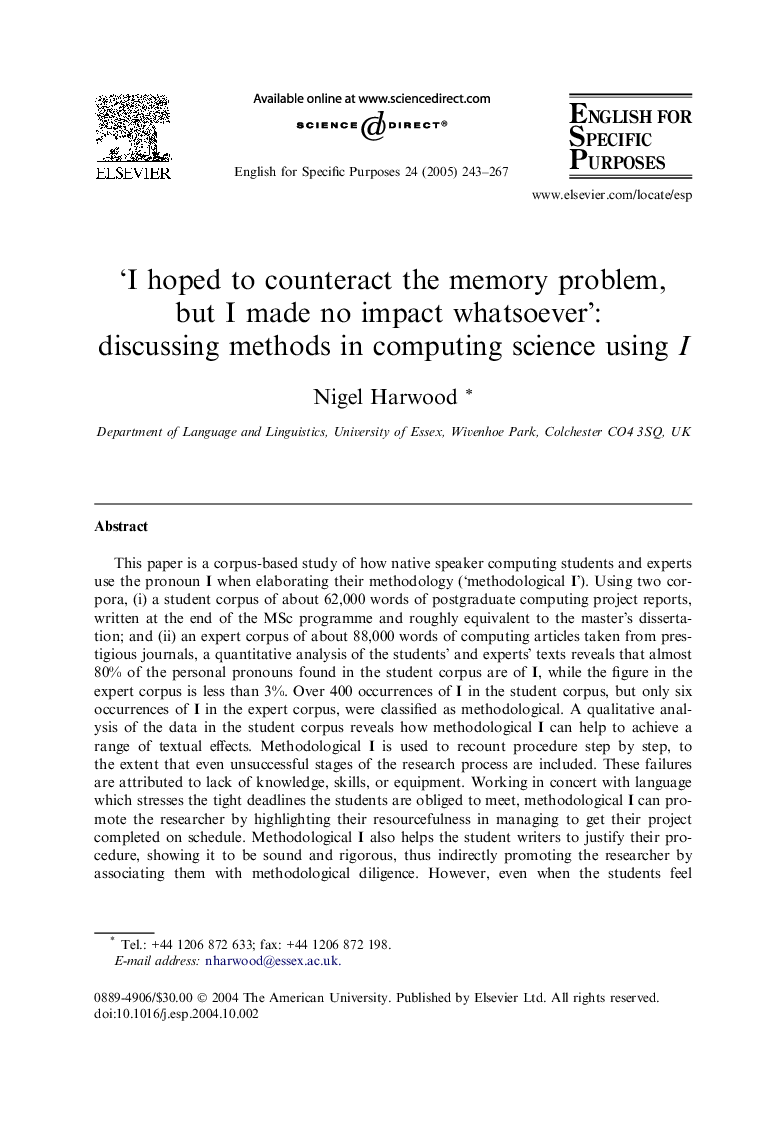| Article ID | Journal | Published Year | Pages | File Type |
|---|---|---|---|---|
| 10313698 | English for Specific Purposes | 2005 | 25 Pages |
Abstract
This paper is a corpus-based study of how native speaker computing students and experts use the pronoun I when elaborating their methodology ('methodological I'). Using two corpora, (i) a student corpus of about 62,000 words of postgraduate computing project reports, written at the end of the MSc programme and roughly equivalent to the master's dissertation; and (ii) an expert corpus of about 88,000 words of computing articles taken from prestigious journals, a quantitative analysis of the students' and experts' texts reveals that almost 80% of the personal pronouns found in the student corpus are of I, while the figure in the expert corpus is less than 3%. Over 400 occurrences of I in the student corpus, but only six occurrences of I in the expert corpus, were classified as methodological. A qualitative analysis of the data in the student corpus reveals how methodological I can help to achieve a range of textual effects. Methodological I is used to recount procedure step by step, to the extent that even unsuccessful stages of the research process are included. These failures are attributed to lack of knowledge, skills, or equipment. Working in concert with language which stresses the tight deadlines the students are obliged to meet, methodological I can promote the researcher by highlighting their resourcefulness in managing to get their project completed on schedule. Methodological I also helps the student writers to justify their procedure, showing it to be sound and rigorous, thus indirectly promoting the researcher by associating them with methodological diligence. However, even when the students feel obliged to record their procedural failures, methodological I can help them create a favourable impression on the reader by constructing them as tenacious neophytes whose repertoire of computing skills has increased considerably as a result of working on their research project. The study ends with the pedagogical implications of the findings for EAP teachers and students.
Related Topics
Social Sciences and Humanities
Arts and Humanities
Language and Linguistics
Authors
Nigel Harwood,
